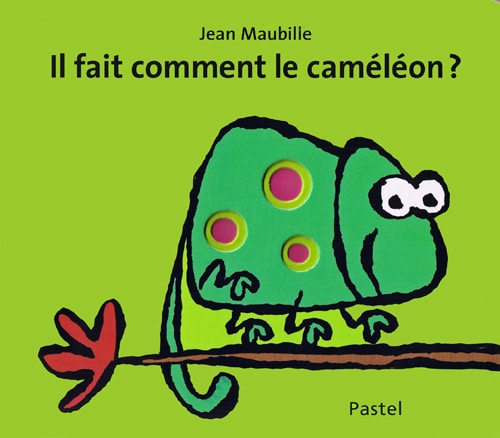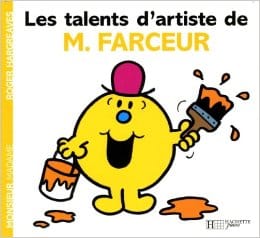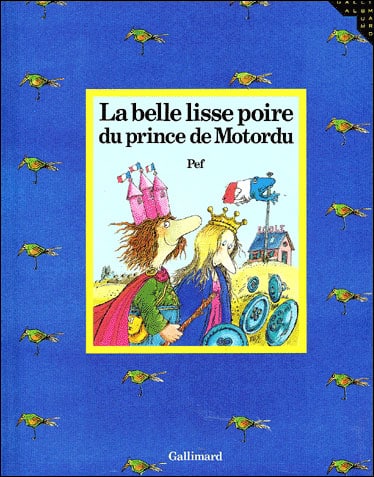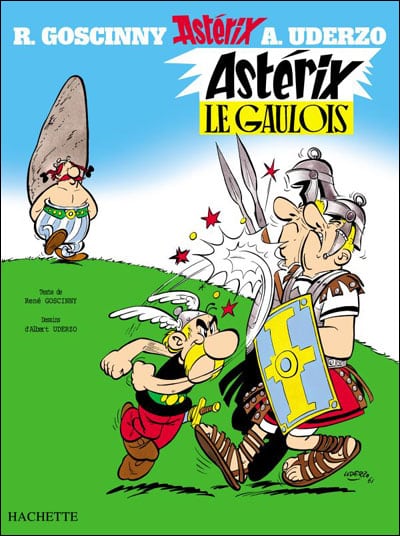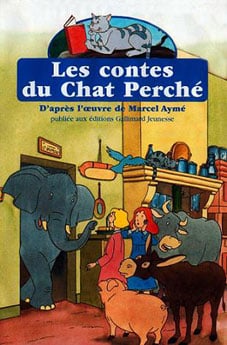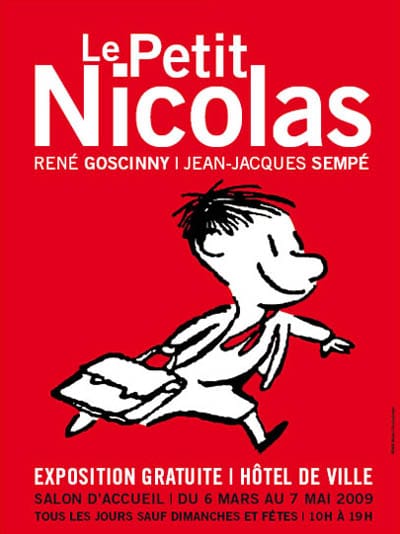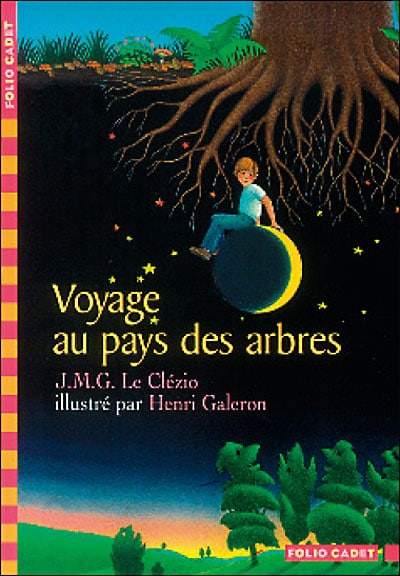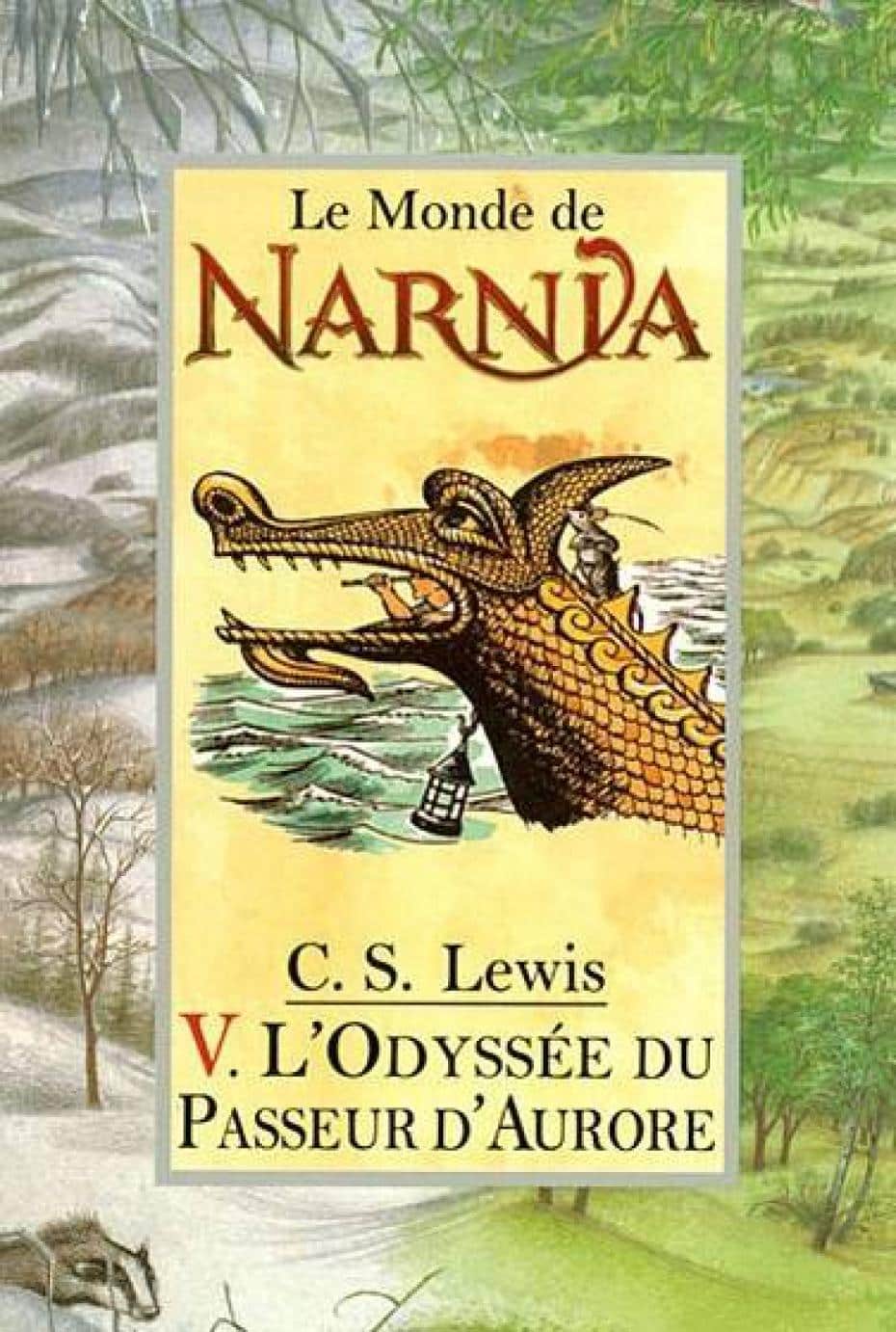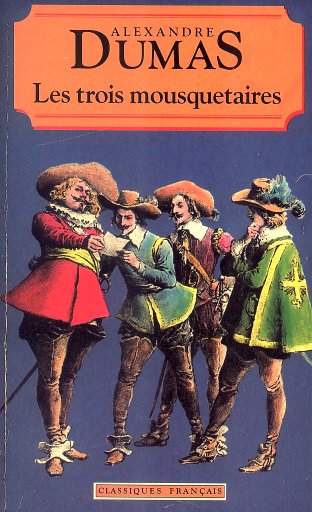Contents
- 1. “Il Fait comment Le Caméléon?” / “How Does the Chameleon Go?”
- 2. “Monsieur Madame/ The “Mr. Men and Little Miss” Book Series
- 3. “La Belle Lisse Poire du Prince de Motordu” / “The Prince of Motordu’s Beautifully Smooth Pear”
- 4. “Asterix”
- 5. “Le Petit Prince” / “The Little Prince”
- 6. “Les Contes du Chat Perché” / “The Tales of the Perched Cat”
- 7. “Le Petit Nicolas” / “Little Nicholas”
- 8. “Voyage au Pays des Arbes” / “Voyage to the Country of Trees”
- 9.”Le Monde de Narnia” / “The Chronicles of Narnia”
- 10. “Les Trois Mousquetaires” / “The Three Musketeers”
- Where to Find French Children’s Books
- And One More Thing...
Learn French with 10 Fun Children’s Books
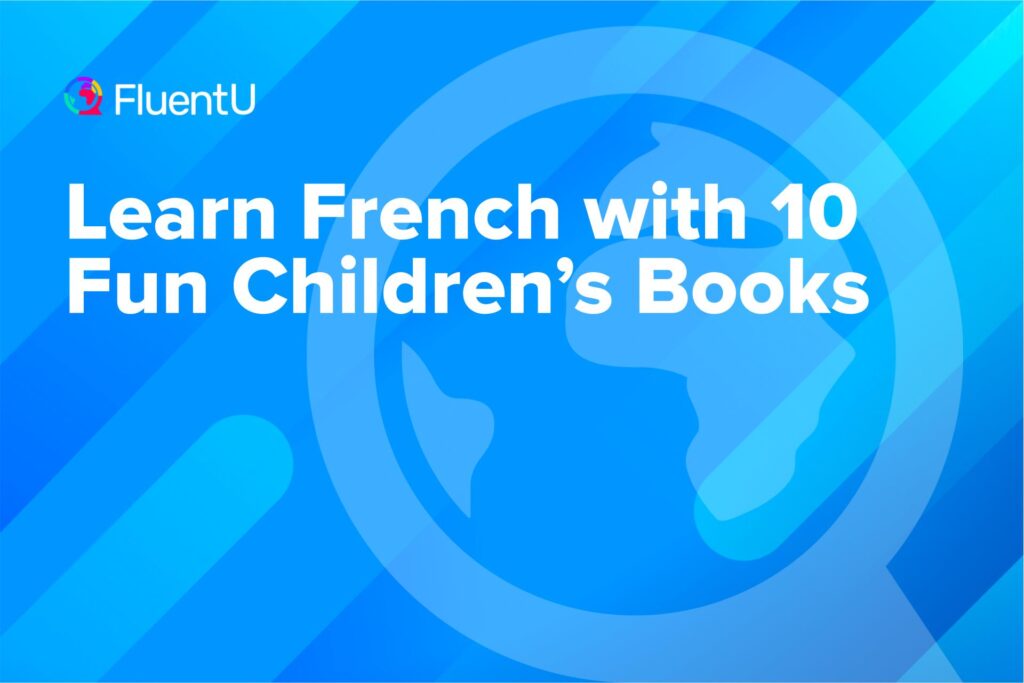
Children’s books give you a chance to build up and develop your French comprehension skills. Not only that, they open you up to a world of culture that you may have missed out on as an adult French language learner. After all, the language is much more than just the words, as it’s also the world in which the words manifest.
These books are often quick, easy, full of pictures fun and absolutely charming.
Download: This blog post is available as a convenient and portable PDF that you can take anywhere. Click here to get a copy. (Download)
1. “Il Fait comment Le Caméléon?” / “How Does the Chameleon Go?”
Author: Jean Maubille
For all our month-old readers in the house, it is best to start with the basics. This book focuses on pictures, vocabulary repetition, useful verbs and animal noises. Although completely juvenile in subject matter, it is a nice introduction into the structure of basic sentences.
Through constant reinforcement, adult readers can familiarize themselves with these basic linguistic necessities… and also the fact that a French cow goes meuh!
2. “Monsieur Madame/ The “Mr. Men and Little Miss” Book Series
Author: Roger Hargreaves
A children’s classic such as this shouldn’t come as surprise on this list. More often than not, French children are brought up on many of the same bedtime stories that we were as youngsters. The familiarity of a childhood classic, rewritten in the beautiful French language, is very helpful in orienting yourself in your new language.
This one is a goldmine for French comprehension development. Not only does it give your brain a better chance to decipher unfamiliar words solely through context (since you already know the story) but it can also bring you a fresh interpretation of the story.
For those of you denied the fun of “Monsieur Madame” as children, treat this suggestion as a variable and replace it with your own fondest childhood books – the Spot Collection, Dr. Seuss and “Curious George” are all available en francais.
3. “La Belle Lisse Poire du Prince de Motordu” / “The Prince of Motordu’s Beautifully Smooth Pear”
Author: Pef
This clever little book mightn’t reveal its true comedy prowess until you grasp the vocabulary used. Based on a prince who believes he lives in a chapeau (hat), as opposed to a chateau (castle), the story employs a mismatch of language that can only be rectified by the love of a future princess!
Through repetition and reverse psychology, this tale allows the reader to learn vocabulary in a different method than your usual picture recognition. It also provides examples of very similar words that aren’t to be confused, which could help you with mastering French false friends!
4. “Asterix”
Author: René Goscinny
With a comic book history as long and hilarious as that of France, you would be remiss to ignore such a valuable and entertaining resource. French comic books have a great deal of literary benefits.
“Asterix” is a comic strip, or bandes dessines (BD), that has been charming both the French-speaking world and the world at large since the 1950s. The plot surrounds a small village and their fight against Roman occupation. It is in this world that Asterix embarks on various comical adventures with the help of his bizarre friends. There are 35 volumes to choose from and numerous films to watch afterward.
Similar to actual children’s books, comics present the reader with a visual dialogue to promote the best efficiency in language learning. Although the words and concepts are not as simple as your novice counting and color words, the minimalist format often encountered with BDs still encourages progression for a beginner.
5. “Le Petit Prince” / “The Little Prince”
Author: Antoine de Saint-Exupéry
If you were to ask any French person of the most notable children’s story in French history, chances are “Le Petite Prince” would be their answer. First published in 1943, the book gained the respect of adults, critics and, of course, children everywhere.
In a nutshell, the story follows a young prince who has fallen to Earth from a tiny asteroid. This one is more of a children’s novel than a toddler’s book. The beauty behind its cover lies not only in the simplistic language or endearing illustrations, but also in the rich subtext that comments upon social flaws and the strangeness of the modern world.
Combining an easy-to-read format with a philosophically enriching plot, “Le Petite Prince” is a perfect read for any newcomer to the French language. Keeping a dictionary close by is never a bad idea either, as the purpose of reading is to cement the knowledge you do know and earn the vocabulary you don’t.
Being the most widely read, translated and celebrated book in France, this one provides some special opportunities that other novels simply cannot offer. After you have pondered the meaning of life and, of course, brushed up on your French reading, the option to explore this story as an audiobook, play, ballet, TV show or movie are all available for further appreciation and learning.
6. “Les Contes du Chat Perché” / “The Tales of the Perched Cat”
Author: Marcel Aimé
Written across two volumes, this series follows two sisters with an affection and connection for the animal world, namely those that live on their parents’ farm. These tales utilize very simple language and have been described by the author as being for children aged between four and seventy-five years of age.
Maintaining seven to eight stories per volume allows for quick reads that can both satisfy the learner and provide realistic goals. The old-fashioned mentality of this literature can be trying at times, but, in the defense of all creative works, a blast from France’s 1930’s past can be a brilliant time capsule for the modern Francophiles of today!
7. “Le Petit Nicolas” / “Little Nicholas”
Author: René Goscinny
Ready to graduate from preschool French and enter the big scary world of eight to ten-year-old readers? At this point, you will naturally find yourself at the beginning of “Le Petit Nicolas” series. Written by the author of the comic book series “Asterix,” this series is a maison favorite.
The books are written from little Nicolas’s point of view as he lives out a perfect childhood, rampant with the sweet, simple humor that one might have forgotten about with age and maturity. The juxtaposition between a child’s egocentricity and their untarnished expectations of simple, black and white, right and wrong proves both enlightening and entertaining for those living in the adult world. Another definite read for young and old alike!
On a linguistic level, sentences in this book are more difficult now with the introduction of casual French communication and a child narrator. Although the vocabulary can be managed with the help of an occasional visit to Google Translate, it is the sentence structure in these books that will have you exhausted sooner rather than later if you aren’t ready.
Options to view this novel as a film are now also available in French.
8. “Voyage au Pays des Arbes” / “Voyage to the Country of Trees”
Author: J.M.G. Le Clézio
A magical read into the poetic life of a young boy who befriends a forest of trees. The book projects beautiful metaphors that beg the reader to find allegories related to their own life – a convention of French children’s literature that seems often present.
Winner of a literary Nobel Prize, this novel will enhance your French vocabulary and provide insight into the romantic mentality of the language.
9.”Le Monde de Narnia” / “The Chronicles of Narnia”
Author: C.S. Lewis
A literary classic in any language, “The Chronicles of Narnia” is perfect for a well-adjusted reader. Despite being considered a serious novel by any standards, the book was still written with an easy-to-read format that is designed to motivate young readers to keep going until the end.
Drawing on all the positives of a familiar text, reading “Le Monde de Narnia” is a no-brainer.
10. “Les Trois Mousquetaires” / “The Three Musketeers”
Author: Alexandre Dumas
“Tous pour un et un pour tous!” is a household saying that can be nonchalantly translated to mean “All for one and one for all!” It can also be pinned to the worldwide favorite, “Les Trois Mousquetaires,” a tale of comradery, romance and good old-fashioned dueling.
If you can manage this story then you are well on your way to reading fluency and enjoying all that French literature has to offer!
Where to Find French Children’s Books
It may be all well and good to have a handy list of French novels at your disposal, but getting your hands on them may be another story. Luckily, we can give thanks to the internet for bringing the French library to our library by means of one or two clicks! To purchase any of the above titles or even read ebooks for free, browse websites such as:
Don’t forget: the option to pay a visit to your closest French association or trusty Alliance Francaise for a more hands-on approach is always available as well.
Download: This blog post is available as a convenient and portable PDF that you can take anywhere. Click here to get a copy. (Download)
And One More Thing...
If you like learning French at your own pace and from the comfort of your device, I have to tell you about FluentU.
FluentU makes it easier (and way more fun) to learn French by making real content like movies and series accessible to learners. You can check out FluentU's curated video library, or bring our learning tools directly to Netflix or YouTube with the FluentU Chrome extension.
One of the features I find most helpful is the interactive captions—you can tap on any word to see its meaning, an image, pronunciation, and other examples from different contexts. It’s a great way to pick up French vocab without having to pause and look things up separately.
FluentU also helps reinforce what you’ve learned with personalized quizzes. You can swipe through extra examples and complete engaging exercises that adapt to your progress. You'll get extra practice with the words you find more challenging and even be reminded you when it’s time to review!
You can use FluentU on your computer, tablet, or phone with our app for Apple or Android devices. Click here to take advantage of our current sale! (Expires at the end of this month.)
